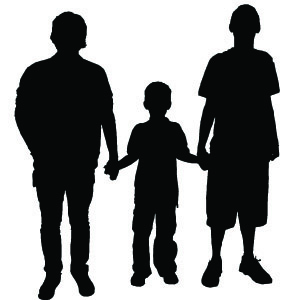 By BRENDAN HALL
By BRENDAN HALL
There are 50 states in the nation. Of the 50 states, 49 have legalized gay adoption in some sense, whether through single or gay adoption. Only one state has yet to get with the program and take action in legalizing gay adoption: Florida.
It is time for Florida to follow the footsteps of its fellow states and legalize gay adoption as soon as possible. Not only that, but the United States needs to establish a federal law that strictly prohibits states from denying the rights for gays to adopt. There have been countless debates over whether or not the Constitution protects the right for homosexuals to adopt, but there should be a definitive answer to the question, and the answer should be “yes.”
The Constitution’s Fourteenth Amendment contains an equal protection clause stating the “no state shall… deny any person within its jurisdiction the equal protection of the laws.” Although this amendment was enacted to protect the right of free blacks, it specifically designates that no state shall deny the citizens the right of protection from the law. The problem lies in the fact that there is no specific law stating that gay adoption is legal and a constitutional right in the United States.
This is where the federal government needs to step in; there is absolutely no reason to refuse gays to adopt. The government does not exclude the rights of citizens based on race, gender or age, and the same should be true for sexual preference.
A common argument against gay adoption is that gay couples are unfit to raise children, that their marriages or unions are less stable, they can’t provide a healthy atmosphere or even that children raised in a household with gay parents are at a higher risk of being sexually abused. None of these assumptions have any factual basis, but are rather stereotypical prejudices devised to wrongfully destroy the gay adoption movement. No professional study has ever justified any of these claims. The claim that a gay household is less stable than a heterosexual one is also ironic and irrational, especially when over half of heterosexual marriages end in divorce. In Denmark, where gay marriage is legal, the divorce rate from homosexuals is only 17 percent as compared to 46 percent among heterosexuals.
There are plenty of gay couples that would provide just as much love, comfort and support as any heterosexual couple would. People believe that homosexual couples cannot raise a child because they are of the same sex and do not provide the traditional one mother and one father, as is supposed to be provided for a child. However, a mother and father are not necessary to provide a steady home.
Single parents do not offer the traditional mother and father, yet raise perfectly healthy children all across the world. Advocates against gay adoption also say that two fathers cannot provide the proper information and life skills to raise a girl as she matures; yet, nobody says a word about a single father raising his daughter.
Most importantly, the focus should be on the kids. There are countless numbers of children waiting to be adopted, with the best estimation around 510,000 children in 2006 (the most recent statistic collected), and allowing gay couples to adopt could change lives in a positive way.
Homosexual couples, just like heterosexual ones, would be more than willing to adopt all types of foster children, whether abused, younger, older or special needs children. After the couple has a thorough background check (just like with any other type of adoption), the couples should be allowed to bring these children into their homes and share their love.
Regardless of sexual preference, as long as the parents are able to provide food, clothing and shelter and welcome the children into a loving home because they are wanted, no one should be able to say anything against it.
Amongst all the bickering and arguing over the issue, people need to keep the kids in mind; if a couple, whether straight, gay or bisexual, is willing to positively influence and change the life of a child, nobody should have the right to stop that.